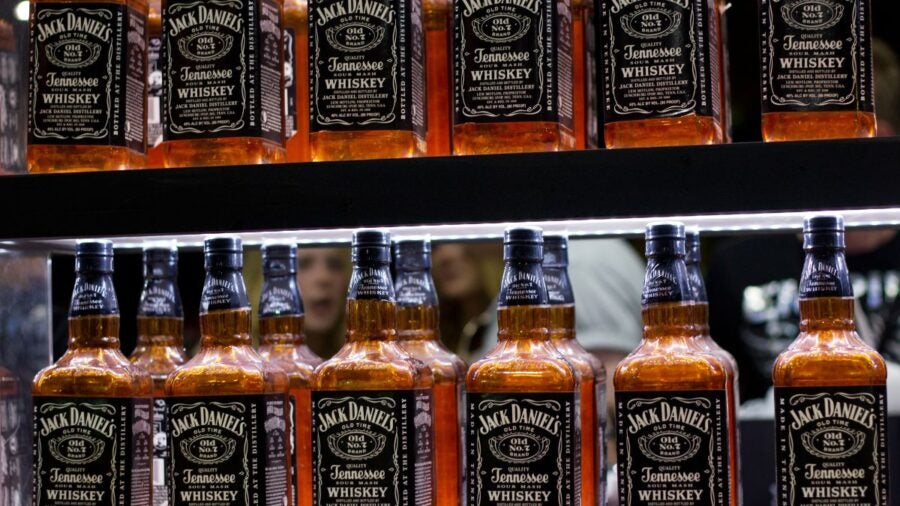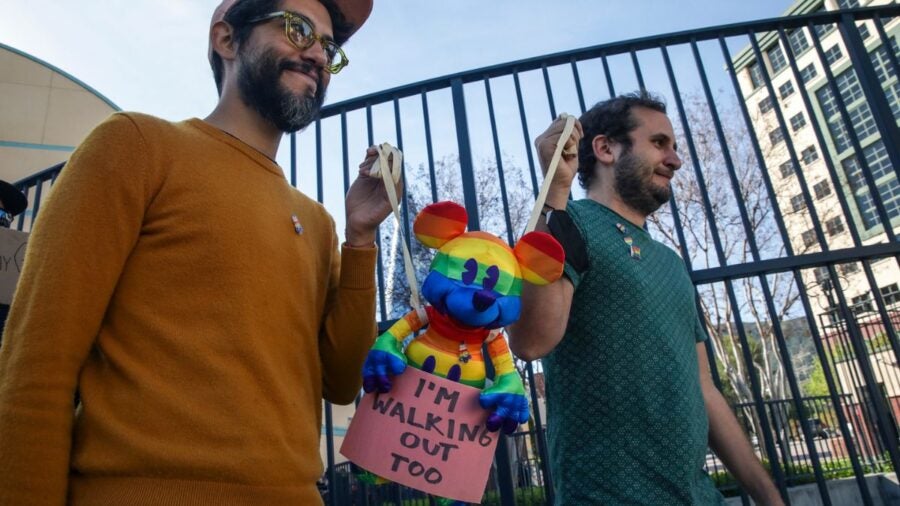
Ongoing pressure from politicians, activist investors and consumers is causing a growing number of companies to review their diversity, equity and inclusion (DEI) initiatives.
Many companies bolstered their diversity efforts in 2020, following the murder of George Floyd and the subsequent Black Lives Matter movement. However, the political tide turned in 2023, when the US Supreme Court ruled that affirmative action could no longer be used in university admissions.
This prompted a group of Republican state attorneys general to send a letter to Fortune 100 CEOs, warning them of the potential consequences of using positive discrimination in hiring decisions.
This triggered an initial wave of DEI rollbacks. US retailer Lowe’s cited the Supreme Court ruling in its decision to scale back its diversity, equity and inclusion policies in 2024.
Since then, the trend has accelerated. Ford, Walmart, Molson Coors, Harley-Davidson and Toyota were among those that opted to weaken their DEI policies last year, as six US states passed anti-DEI laws.
Donald Trump’s return to The White House has provoked a further round of DEI cutbacks as companies have followed his lead in dismantling their diversity and inclusion initiatives.
On the first full day of his second term, Trump signed an executive order that ended DEI funding for government agencies and repealed orders signed by his predecessor, Joe Biden, which aimed to combat racial and gender-based discrimination.
Meir Shemla, associate professor of organisational behaviour at Rotterdam School of Management, says Trump’s opposition to DEI is set to “amplify an undercurrent of scepticism that has been building for years”.
This scepticism could cause more companies to withdraw DEI funding and join the list below of businesses cutting back on diversity and inclusion programmes.
Accenture
Irish-headquartered consultancy Accenture has scrapped several DEI initiatives in response to the changing political landscape in the US. These include its global diversity goals, career development programmes for specific demographic groups and submissions to external diversity benchmarks.
In an internal memo seen by Reuters, Accenture CEO Julie Sweet told staff the business, which has contracts with the US government, must comply with Trump’s recent executive orders. However, she added that inclusion would remain a core company value.
Amazon
Amazon brought an end to some of its diversity and inclusion programmes at the start of the year, as it unified several of its employee groups under a single umbrella.
Boeing
American airplane manufacturer Boeing joined the list of companies scrapping DEI efforts in November last year when its diversity and inclusion team was disbanded. This formed part of a 10% reduction in overall headcount across the business.
Brown-Forman

Brown-Forman, which owns the whiskey brand Jack Daniels, brought an end to several of its DEI initiatives in August 2024. As part of the changes, the company will no longer link executive pay to DEI performance and employee and supplier diversity targets have been scrapped.
Brown-Forman also ended its participation in the Human Rights Campaign’s (HRC) Corporate Equality Index, which rates US businesses on their LGBTQ+ policies and initiatives.
The move followed pressure from anti-DEI activist Robby Starbuck, who has frequently used social media to instigate public backlashes against companies he deems “woke”.
BT
BT is one of the few companies based in the UK to make changes to its DEI policies. Earlier this month (February), the blue-chip firm told investors it plans to stop using DEI metrics as part of its method to calculate bonuses for middle managers.
Up to 10% of the annual bonus paid to BT’s 37,000 managers was dependent on employee representation and engagement of under-represented team members. This element of BT’s bonus system will remain in place for its 550 most senior leaders.

Citigroup
Citigroup will no longer require job interview candidates to come from a diverse range of backgrounds and has disbanded its representation goals.
Last week, the US bank’s CEO Jane Fraser also said its ‘diversity, equity and inclusion and talent management team’ will be renamed to ‘talent management and engagement’.
Deloitte
Consulting and accountancy business Deloitte informed staff it will be ending its DEI programme and “sunsetting” its annual diversity report, earlier this month. It also instructed US staff working on contracts for the American government to remove gender pronouns from their email signatures, according to the Financial Times.
However, the UK arm of the business will continue its DEI initiatives. Deloitte UK CEO Richard Houston reaffirmed that diversity remains “critical to our firm” and committed to continuing to report on its progress on inclusion.
Disney

Disney has also changed its stance on DEI. In a note to employees, shared in February, Disney CHRO Sonia Coleman said the company would be getting rid of its Reimagine Tomorrow website, which highlighted the stories of people from diverse backgrounds.
It will also be renaming Employee Resource Groups as “Belonging Employee Resource Groups” and changing the way the company’s performance on diversity and inclusion is used to calculate executive compensation.
The entertainment giant had previously been a target of Republican governor of Florida, Ron DeSantis, who considered removing Disney’s special economic status over its stance on LGBTQ+ issues.
FCA
The UK financial regulator, the FCA, and the Bank of England’s regulatory arm, the Prudential Regulatory Authority (PRA), have both dropped proposed diversity and inclusion rules.
The two regulators had first consulted on new DEI rules consulted in September 2023 that would have required regulated finance firms to promote diversity and inclusion.
However, these plans have now been scrapped following feedback. While both the FCA CEO Nikhil Rathi says the regulator will continue to support “voluntary industry initiatives”, it did not want to create “additional burdens” for firms through the introduction of new rules.
Ford
The US car manufacturer Ford announced changes to its DEI policies in August last year. The company has ended its participation in the HRC’s Corporate Equality Index and made changes to its employee resource groups.
Starbuck had previously threatened a boycott of Ford because of its DEI policies.
Goldman Sachs
This month, Goldman Sachs vice-chair Richard Gnodde revealed the bank’s plans to scrap one of its internal diversity rules, in an interview with the BBC.
The US investment bank previously required companies to have at least one board member from a diverse background before it would advise them on public flotations. This rule was first introduced in 2020 and it was later increased to two board members, one of whom had to be a woman.
Gnodde did reiterate the importance of having a diversity of views on company boards, however he added Goldman Sachs’ rule has now “served its purpose”.
Earlier this month, Alphabet-owned Google informed staff that its DEI hiring goals will be scrapped.
In 2020, its CEO Sundar Pichai set targets for at least 30% of its leadership to come from under-represented groups by 2025. Google’s DEI initiatives are also under review.
Harley-Davidson
Harley-Davidson was another target of Starbuck, who branded the company “woke” in July last year.
In response, the Milwaukee-based motorcycle company ditched its minority-owned supplier goals, made changes to its employee training programmes and ended its association with the HRC.
John Deere

Agricultural equipment manufacturer John Deere overhauled its DEI policies in July 2024, following criticism from Starbuck and other conservatives.
In a statement on social media, the company confirmed it would stop supporting any “social or culture awareness parades, festivals or events”. Training materials have also been audited to ensure social messages are removed and its business resource groups were also reviewed.
Lowe’s
US homeware company Lowe’s began reviewing its DEI programmes following the Supreme Court’s decision to outlaw affirmative action in July 2023.
The business disbanded its employee resource groups, combining them into one single organisation. It has also ceased sponsorship and participation of any events that are outside of its business remit and will no longer participate in HRC surveys.
Mattel
Barbie-maker Mattel has withdrawn references to diversity, equity and inclusion in its investor documents and didn’t include board diversity data in two recent filings, according to Bloomberg. In prior years, the company has included tables that show the gender and demographic breakdown of its board members.
Mattel has made efforts recently to make its product more inclusive by releasing dolls with different skin tones, body types and representing people with disabilities. Despite the change of language in its reporting, the company says it does not reflect a change of approach to its products design or hiring.
McDonald’s
McDonald’s moved to dilute its DEI commitments in the wake of Trump’s re-election. In January, the fast food chain said it would abandon diversity targets for senior roles, end DEI requirements for suppliers in the US and rebrand its diversity team as ‘global inclusion’.
However, the UK arm of the business is retaining its diversity commitments and will keep its target for 40% of its senior leadership positions to be held by people from under-represented backgrounds.
Meta
Facebook parent company Meta announced it will be scaling back its diversity programmes at the start of the year in response to the “shifting legal and policy landscape”. While the company maintains it will continue to look to hire staff from a diverse range of backgrounds, it has stopped using a diverse-slate approach.
Representation goals for women and ethnic minorities have also ceased and Meta has ended its efforts to use diverse-owned businesses in its supply chain. Meta’s internal DEI team has also been ditched.
The changes followed Meta CEO Mark Zuckerberg’s announcement that it would end its fact-checking programme on its social media sites, which have previously attracted Trump’s ire.
Molson Coors
Molson Coors abandoned its supplier diversity quotas and its executive bonus for achieving representation targets last year. DEI training programmes have also been ditched for its US staff and its employee resource groups have been rebranded as business groups.
The brewer has also left the HRC’s corporate equality index, despite previously scoring a perfect 100 points. Charitable donations from the business will now go towards organisations whose aims align with its “core business goals”.
Ocado
The UK grocery delivery company Ocado has pushed back some of its diversity targets, despite claiming that it remains committed to DEI.
The brand’s aim of having 10% of senior management positions filled by people from ethnic-minority backgrounds by 2027 has been delayed to 2030, according to reports in The Telegraph.
Ocado says that the change to its diversity goals is a result of its “strong retention rate” among senior managers, which has held up progress in this area.
A spokesperson for the company said: “It does not reflect any change in our commitment to diversity, equity and inclusion and we are making good progress across our other goals in these areas which extend across the business and our pipeline of talent.”
Paramount
Paramount executives cited the Trump administration’s anti-DEI mandates in their decision to roll back the entertainment company’s diversity initiatives. Last month (February), its co-CEOs informed staff the company will no longer have hiring goals based on race, ethnicity, sex or gender and that it will stop collecting this data from applicant, except in countries where it is a legal requirement.
The DEI component of its employee incentive plan has also been disbanded. In an internal memo, seen by The New York Times, Paramount execs wrote: “With our business objectives firmly in mind, we will continue to evaluate our programs and approach to ensure that we are widening our aperture to attract talent from all geographies, backgrounds and perspectives.”
Pepsico

Pepsico dropped its chief DEI officer role as part of a change in the company’s approach to diversity and inclusion.
In a memo shared with staff this month, Pepsico CEO Ramon Laguarta stated the company will no longer set representation goals for its management roles or suppliers. Its current chief diversity officer will take on a new role aimed at improving engagement, inclusion and leadership development.
Moving forward, Pepsico’s sponsorship of events will also have to align with business goals.
PwC
Big four accounting firm PwC dropped some of its diversity goals in January 2024, according to a report in the Financial Times. Its 2023 DEI report dropped a pledge to award 40% of its procurement spending to minority-owned suppliers.
PwC’s student internship programme and accounting exam scholarships, which were aimed at improving diversity at the firm, were also wound down.
Toyota
Toyota has also faced scrutiny from the anti-DEI activist Starbuck. In October, the automaker told staff it will no longer sponsor LGBTQ+ events and end its participation in the HRC’s Corporate Equality Index, according to Bloomberg.
Despite this, Toyota said it will continue to “encourage an inclusive environment where diversity of thought can flourish”.
Target
Target announced it would be scaling down its DEI efforts in January. However, the retailer’s stores experienced a decline in footfall in the weeks following, as civil rights leaders called for people to boycott the company.
Foot traffic declined 9% the week beginning 3 February, according to data from Placer.ai, while the company’s share price dropped 8.7% following the announcement of its DEI reversal. Target now finds itself under pressure from both conservatives and progressives over its approach to DEI.
Tractor Supply Co
The US company Tractor Supply Co rolled back its DEI initiatives in response to public backlash in June 2024. In response to pressure on social media, which once again was led by Starbuck, the outdoor retailer pledged to stop sponsoring pride festivals and voting campaigns, cut DEI roles and retire its DEI goals.
Walmart
In November, Walmart CEO John Furner told US broadcaster CBS that the retailer would drop the terms ‘LatinX’ and ‘DEI’ from its corporate communications and would stop funding the Walmart Centre for Racial Equity – a philanthropic venture aimed at sharing best practices for improving racial diversity.
However, the move has been criticised by shareholders who accused Walmart of bowing to “bullying and pressure from anti-DEI groups”.

Ongoing pressure from politicians, activist investors and consumers is causing a growing number of companies to review their diversity, equity and inclusion (DEI) initiatives.
Many companies bolstered their diversity efforts in 2020, following the murder of George Floyd and the subsequent Black Lives Matter movement. However, the political tide turned in 2023, when the US Supreme Court ruled that affirmative action could no longer be used in university admissions.
This prompted a group of Republican state attorneys general to send a letter to Fortune 100 CEOs, warning them of the potential consequences of using positive discrimination in hiring decisions.
